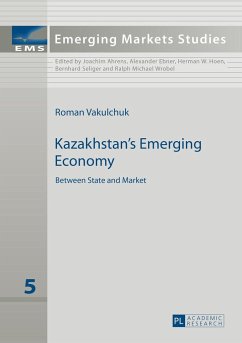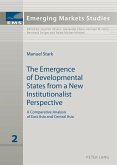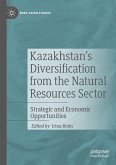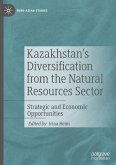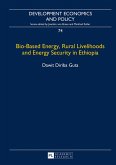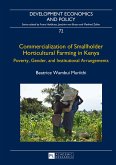Kazakhstan has become a successful market reformer under the leadership of President Nursultan Nazarbayev. But what type of a market economy has emerged in the country since 1991? This book focuses on Kazakhstan's transition path, examines the role of the state in steering economic processes, and analyses the state - business interaction. The Varieties of Capitalism approach and a core - periphery analytical framework are applied to classify the evolving model of capitalist economy in the country in detail. The research design is based on a qualitative cross-sectional interview study, where 159 semi-structured interviews were conducted. This study makes an innovative contribution to the scholarly literature on the economic and institutional transition of Kazakhstan.
Bitte wählen Sie Ihr Anliegen aus.
Rechnungen
Retourenschein anfordern
Bestellstatus
Storno

